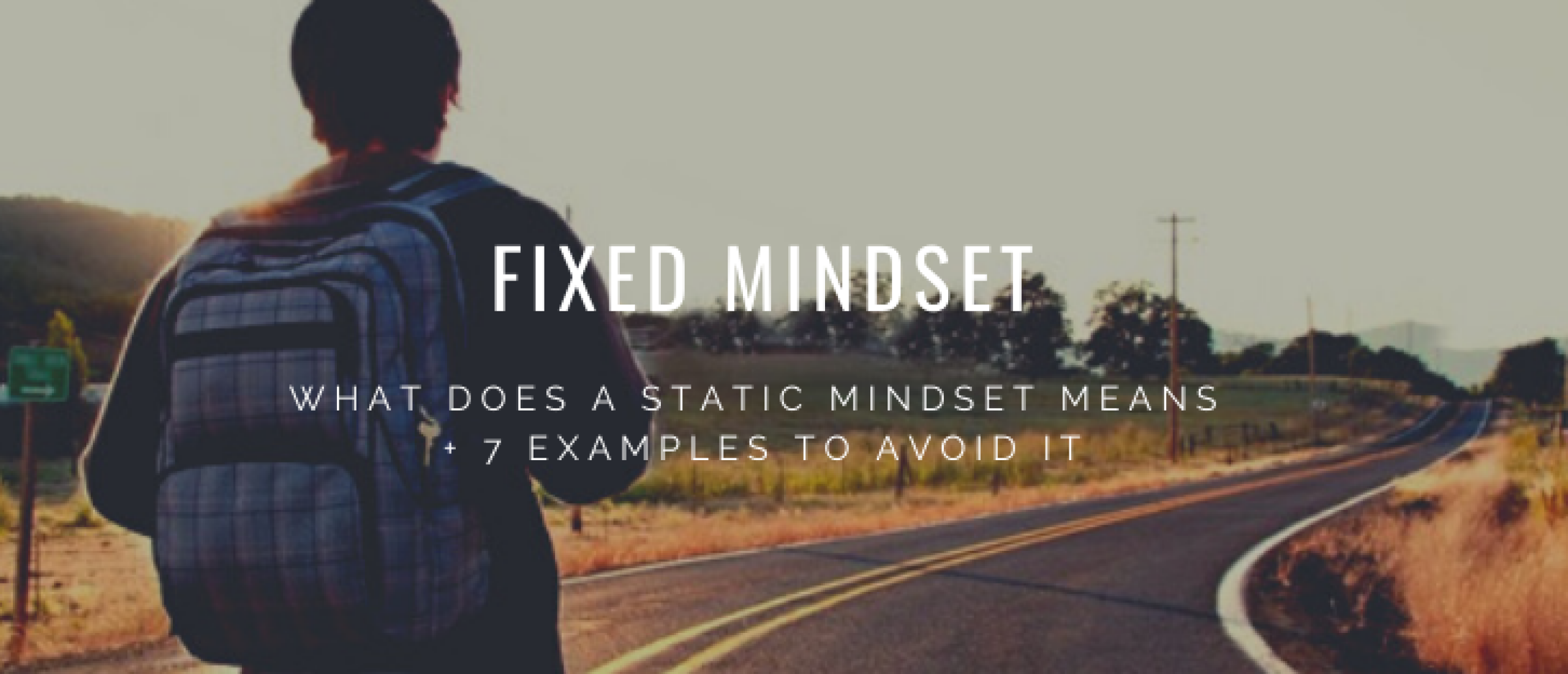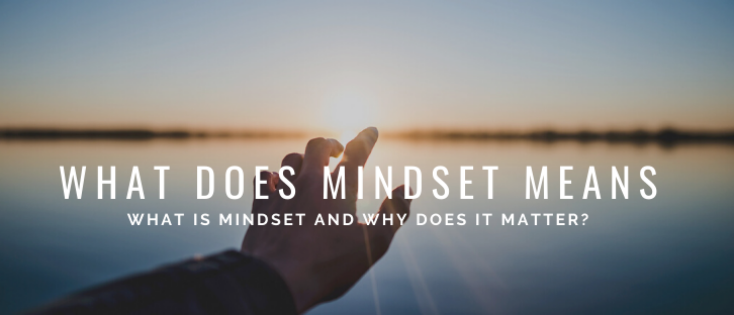Dear Happy Investor, Your way of thinking determines your current and future situation. A fixed mindset causes you to stand still in development. It doesn't take you any further. You are fixed. You are static. And often even unconsciously! In this article we talk about a fixed mindset in detail. We explain what it is, and give examples of a static mindset.
As Happy Investors, we strive to live happy and sustainable. We value financial freedom, fulfilment, love, and sustainability. At the root of our success is a strong mindset. How you think determines your future. Happy Investors think in personal growth. A fixed mindset is something we want to avoid.
Below we explain why.
Contents
Fixed Mindset Explanation
The concepts of fixed and growth mindset are popular in contemporary psychology. They come from Carol Dweck's 2006 book, Mindset: The New Psychology of Success. Since then, she revolutionized psychology and how we see mindset, intelligence, and skills.
A fixed mindset sees skill as something static, in contrast to a growth mindset. Simply put, they believe you are born with these traits. This belief affects one's performance in many areas. Let's see some characteristics and examples of a fixed mindset.
What does a Static Mindset mean?

A fixed mindset or a static mindset means someone tends to see skills, abilities, talent, or intelligence as something fixed. In other words, they believe that one person is inherently smart, talented, or skilled. They see abilities as something you are born with, instead of something you develop.
Thinking this way may lead to different consequences, such as low self-esteem or depending on other people's approval. They are more likely to give up, and they don't make efforts to improve.
A static mindset is the opposite of a growth mindset, which is the thinking pattern that values efforts instead of set skills. People with growth mindsets believe that they can achieve anything with effort.
The relationship between growth and static mindsets is not so black and white. Most of us are at one point between those two types of mindset. According to Carol Dweck, people can have a growth mindset in one domain and a fixed mindset in another.
So, it’s a great idea to start paying attention to our thoughts, feelings, and actions to identify fixed-mindset traits. This way, we can change them for growth-mindset thoughts. By doing so, we can achieve personal development.
Fixed Mindset: 7 Examples
Let's look at some examples of a fixed mindset. Using the examples, we will also explain how to deal with a fixed mindset.
A fixed mindset believes intelligence and skills are static
The main trait of a fixed mindset is the belief that intelligence and skills are fixed. In other words, they believe they can’t become any smarter or more talented. Instead, their abilities are something static that cannot improve.
Example: “I’m either good at something or I’m not.”
A fixed mindset believes one person’s skills are carved in stone. This mindset creates a need to prove yourself over and over.
Example: “I can’t learn now, it’s too late”.
People with static mindsets don't adventure to try new things because they assume they can't learn them. For instance, they believe that they had to be training since childhood to be good at something. It's like the old saying, "you can't teach an old dog new tricks."
A static mindset fears challenges and failure
People with static mindsets see their skills as part of who they are. If they are bad at something, they see it as something permanent, it can’t be changed.
For that reason, they avoid situations in which they can fail. That would make them feel bad about themselves.
Example: “There is no point in trying If I’m going to fail.”
True, there's a chance you'll fail. You may fail several times. You can fail so horribly that you get paralyzed and unsure of what to do next. But every setback provides us with an opportunity to evaluate the situation. See things from a different light.
If you truly want something, you will keep fighting, every time you fail.
A fixed mindset fears getting feedback from others

When you see skills as a part of who you are, feedback feels like a personal attack. For that reason, people with static mindsets don’t like feedback or criticisms.
Example: I hope nobody makes comments about my performance.
You may be mistakenly interpreting what others are saying as harmful when they're only trying to help. You need to realize that any feedback, even if it's destructive, is not specifically about you. It's essential to learn to separate the words from the intent and concentrate exclusively on what you may take away that will be valuable to you.
All feedback is valuable when you want to learn and improve your skills.
A fixed mindset feels threatened by the success of others
Because your characteristics and abilities are static, you may feel that your success is fixed too. You feel both frightened and profoundly confused if someone else experiences exponential growth, success of any kind, or simply happiness apart from their success.
You may ask yourself, why am I not succeeding? What is wrong with me?
Example: When I see others succeed, it makes me feel I’m a failure.
Why are we so insistent on being put out by the success of others? It's something we should be happy about if anything. Why? Because, more often than not, these fantastic stories are about ordinary people like us—people who understood what they wanted and were willing to go to any length to get it. It reminds us that such potential is an intrinsically human trait available to everyone, not just a chosen few.
In other words, everyone can succeed, If we put the effort to achieve our dreams.
A static mindset hides flaws so as not to be judged by others
Flaws may be human, but they are devastating to someone with a fixed mindset, and they hide them all the time. If someone points out their flaws, they will usually respond negatively: a deflective strategy, an overreaction, or even a hostile response.
Example: Ugh, I hope no one realizes I’m bad at this.
On the other hand, people with growth mindsets don't care about being judged. They know that "being bad at something" is a transitory state. They know they can become better with practice and effort.
A fixed mindset believes effort is worthless

Since they believe that intelligence and abilities are fixed, there would be no point in making any effort to improve. So, people with fixed mindsets rarely make any effort to learn or grow.
Example: I already know everything I need to know.
The mind is like a muscle, and we always have to train it. We never stop learning. You know what they say: "The day you stop learning is the day you die." So, instead, you can ask yourself how you can improve or make things better.
A fixed mindset gives up easily
A fixed mindset feels awkward when they are out of their comfort zone. They may be very good at something. But when they are not, they may feel it is impossible to improve.
Example: This is not my thing, what is the point of trying? I should give up.
They fear trying new things because they are afraid of failure. This may be us in different scenarios, so we should ask ourselves: "how can I succeed If I don't even try?". Those who persevere are the ones who achieve great things.
Example: I can’t make it any better, it is what it is.
The growth mentality implies that you are constantly looking for ways to improve. People with a growth mindset ask themselves: "How could I make this even better?", like the greatest minds in history did. It means that, no matter how good something ends out, those who meticulously analyse their processes and outcomes are those who recognize that improvement is, in fact, all in our heads
Developing a positive mindset will also greatly benefit you in life.








